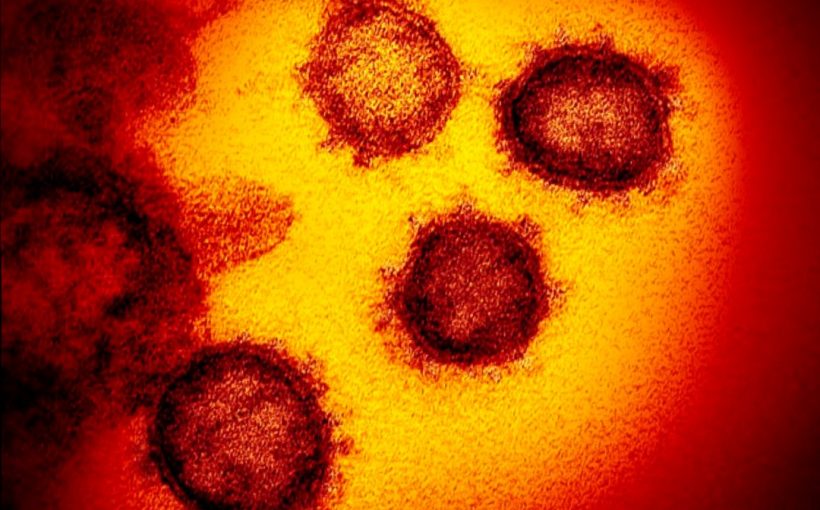A breath test that instantly spots patients with coronavirus has been developed by British scientists. They say the technology could be used to rapidly screen people in airports. And it could also be used in GP surgeries, pharmacies or ambulances, giving an instant result. The technology, developed by a team at Northumbria University in Newcastle, needs further testing but experts believe it could be quickly change the way the virus is spotted around the world.
The technology, developed by a team at Northumbria University (pictured) in Newcastle, needs further testing but experts believe it could be a swift game-changer. Currently coronavirus is tested using a cheek swab which is sent off for analysis at a Public Health England lab, a process that takes between 24 and 48 hours. The Northumbria team’s test spots biological information – known as biomarkers – in the breath.
These biomarkers, which include DNA, RNA, proteins and fat molecules, can spot diseases of the lung and other parts of the body. People simply breath into the device, which is similar to a breathalyser used by the police. Although diagnosis from breath sampling has been used before, previous methods have not been reliable enough due to contamination, loss of the sample and issues of variablity in breath analysis.
But the device developed in Newcastle has solved these problems so data collected closely matches results from lung samples taken surgically. Researchers hope the technology could eventually be used to diagnose lung diseases, diabetes, cancers, liver problems and brain problems.
Dr Sterghios Moschos, associate professor at Northumbria University, said: ‘Our ambition is to reduce the need for bloodletting for diagnosis in its broadest sense.’ Some airports around the world – notably in the US and Singapore – have started using temperature scanners to pick out people with fevers, in a bid to spot afflicted patients. But experts say this does is ineffective because many virus carriers do not have a raised temperature.
Dr Moschos said: ‘In the case of coronavirus, temperature monitoring in airports is not sufficient.’ In UK airports people coming from certain countries – such as China, South Korea and Japan – are asked if they have health complaints. But again, this does not pick up all carriers because many people may pass through without even knowing they have the virus. In hospitals, swabs are used, Dr Moschos said. But a more simple test will enable people to be diagnosed in other settings.
‘The World Health Organisation currently recommends testing nasal swabs, oral swabs and swabs from inside the lungs to avoid missing the infection,’ he said. ‘That’s why it’s vital that we develop non-invasive, quick and cost-effective tests for diagnosis and screening.
‘The research evidence that shows this is possible is well established, what is missing is the standardised and reliable approach to do so outside the research lab: in pharmacies, GP surgeries or the back of an ambulance, for example.’ The main use for the diagnostic tool would be in human healthcare, but the researchers say there could be other uses in industries such as veterinary medicine, biosecurity, agri-technology and food processing.
Professor George Marston, pro vice-chancellor for research and innovation at Northumbria University, said: ‘The team have ambitions for this technology to replace invasive venous and respiratory sampling tests where possible, particularly for older and younger patients where needles and invasive tests can be uncomfortable or sometimes not possible.
‘We need new medical tools that diagnose disease and monitor health more quickly, and this device is one of those technologies. ‘Dr Moschos and his team have the skills and experience to take this device to market, which will have a huge impact on healthcare around the world in years to come.’
Dailymail


